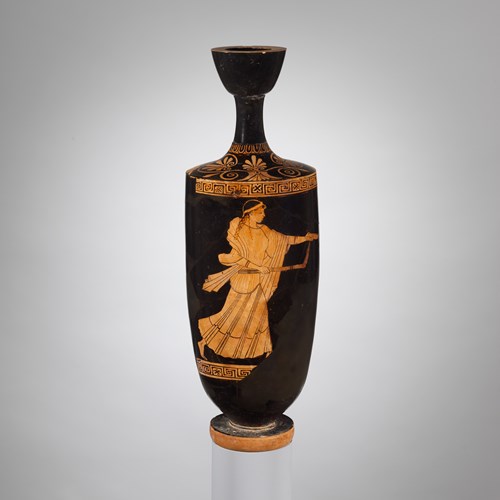Hierophantids
The hierophantids were two priestesses, each dedicated to the service of Demeter or Kore. They came from the Eumolpidae, were selected for life, and enjoyed hieronymy. They could be married and had the right to dedicate their statue within the sanctuary. As crucial assistants to the hierophant, they participated in the initiation process and impersonated the goddesses they served, as the formal attire on their statues suggests. The performance did not occur inside the Telesterion but outside, where the columns would not prevent the spectators from watching the drama. The "drama" was probably about the return of Kore and the reunion with her mother near Agelastos Petra. Afterwards, the hierophantids would proceed together to the Telesterion.

Terracotta lekythos. Woman running with torch and phiale (libation bowl) .This figure is certainly excerpted from a larger narrative scene that takes place at night, such as the return of Persephone, Berlin Painter, ca. 480 BCE, vessel, The Metropolitan Museum of Art © 2000–2023 The Metropolitan Museum of Art / Public domain
The hierophantid Kallisto proudly mentions in an inscription that she was the one who stood “near the doors of Demeter and the Daduch Kore” and lovingly guarded the memory of those nights in the Telesterion that “were illuminated by a light brighter than daylight”. Antiope presented the mystai with the “robust and secret voice of the mysterious oracles” as she accompanied the priests through the Rharian Field to honour Demeter. Finally, the hierophantid Eisidotis was proud to have laid a wreath on the heads of Roman emperors (Antoninus and Commodus).





